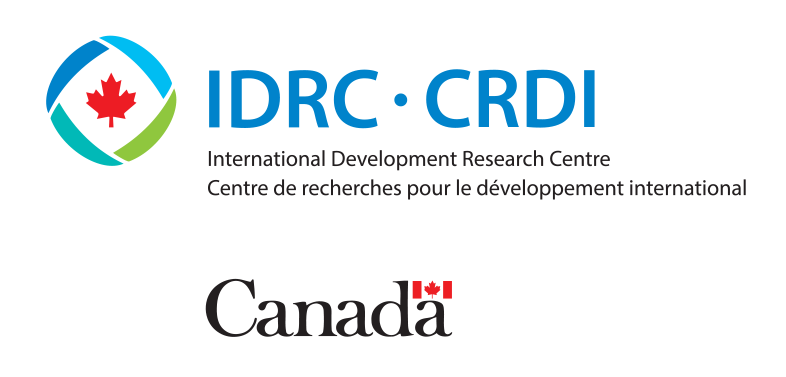About IDRC
A Crown corporation, we support leading thinkers who advance knowledge and solve practical development problems. We provide the resources, advice, and training they need to implement and share their solutions with those who need them most. In short, IDRC increases opportunities—and makes a real difference in people’s lives.
Working with our development partners, we multiply the impact of our investment and bring innovations to more people in more countries around the world. We offer fellowships and awards to nurture a new generation of development leaders.
What we do
IDRC funds research in developing countries to create lasting change on a large scale.
To make knowledge a tool for addressing pressing challenges, we
- provide developing-country researchers financial resources, advice, and training to help them find solutions to local problems.
- encourage knowledge sharing with policymakers, researchers, and communities around the world.
- foster new talent by offering fellowships and awards.
- strive to get new knowledge into the hands of those who can use it.
In doing so, we contribute to Canada’s foreign policy, complementing the work of Global Affairs Canada, and other government departments and agencies.
Resources
Displaying 31 - 35 of 324Haiti’s peasantry as poto mitan : refocusing the foundations of prosperity and development
The paper provides a case study of the conversion of state land in the Commune of Limonade, from a community-controlled agricultural economy to a large-scale agro-export banana plantation called Agritrans. This study shows how repurposing state land may impact food security and social stability of peasant farmers. The Agritrans plantation, designed and implemented by Haitian businessman and current President Jovenel Moïse, is used as a blueprint for Haiti’s development future.
Bottom-up accountability initiatives and large scale land acquisition in sub-saharan Africa : project synthesis report
Undemocratic politics, policy making and law making interpretation and implementation, prove to be drivers of land grabbing in the four country studies presented here. Food and Agricultural Organization of the United Nations (CFS/FAO) Guidelines on Responsible Governance of Tenure of Land, Fisheries and Forests (Tenure Guidelines or TGs), albeit “soft” law, are being used by local communities for bottom-up accountability against land grabbing. Land deals are marked by highly contested political processes – usually between the central state, local communities and the corporate sector.
Bottom-up accountability initiatives and large scale land acquisition in sub-saharan Africa : final technical report
Understanding and interpretation of the CFS/FAO Guidelines on the Responsible Governance of Tenure of Land, Fisheries and Forests (Tenure Guidelines or TGs) is a key factor in communities’ capabilities for collective action, especially through the organization of land pressure groups. TGs help people to engage critically with existing legal frameworks. In this study, community knowledge was enhanced regarding customary as well as statutory laws which protect rights, while enabling people to identify shortcomings/gaps/bias in the existing laws working against them.
Gendered analysis of ICT-enabled agricultural extension and advisory services : the case of Agro-Tech Smart Ex Model
This paper deals with strategies to overcome barriers to agricultural extension and advisory services for women in agriculture. In targeting extension services towards women in the agricultural value chain, specific challenges cited in the study surveys are: small farm sizes due to lack of access to land; limited access to credit, input supply, and assets; and inadequate access to tractor services. Men have main access to silos and warehouses for grain storage.
Using transformative scenario planning as a way to think differently about the future of land use in Bobirwa, Botswana
A widely held belief in Bobira is that private land is more fertile than communal land. What came to light through the workshop information sharing is that there is no difference in the type of soil in villages compared to freehold land. Any difference in soil quality is a result of how the land has been used and managed over the years. Transformative Scenario Planning (TSP) is designed for situations in which people’s perceptions of a problem, and perhaps of one another, have become stuck.







